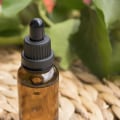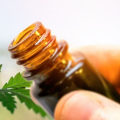Unlike THC (tetrahydrocannabinol), CBD does not produce psychoactive effects. And while marijuana use can lead to dependence, current research suggests that CBD is not addictive. While chronic cannabis use may increase the risk of dependence, CBD alone does not appear to have the potential for addiction or abuse. On the other hand, CBD is not psychoactive and does not seem to be addictive.
Interacts with the human endocannabinoid system by encouraging the release of our own endocannabinoids. The short and simple answer is no. At the molecular level, CBD is not addictive nor does it produce the so-called high effect that THC produces. There is no evidence to suggest that CBD can cause addiction.
Its use is perfectly safe and legal, and the potential it has for health is why so many people are getting their hands on the latest CBD products available. Of course, it's important to remember that research is still well underway, but what we do know is positive. However, some side effects can occur naturally when taking the compound; you'll want to check for any possible drug interactions you're currently taking. Starting with low doses is always recommended, and consulting your family doctor before introducing CBD into your daily routine is also a good place to start.
CBD is a chemical found in marijuana. CBD does not contain tetrahydrocannabinol (THC), the psychoactive ingredient found in marijuana that produces a high. The usual formulation of CBD is oil, but CBD is also sold as an extract, vaporized liquid and oil-based capsule. Food, beverages and beauty products are among the many CBD-infused products available online.
Currently, the only CBD product approved by the Food and Drug Administration is a prescription oil called Epidiolex. In a case reported by the U.S. In the US, up to 52 people in Utah became seriously ill or were hospitalized after using a cbd oil containing an intoxicating synthetic cannabinoid drug. While CBD does not produce the same addictive effects as THC, it is possible that a person who takes large amounts of CBD daily will experience side effects such as changes in sleep, inflammation and anxiety if they quit smoking suddenly.
Unlike CBD extracted from hemp, CBD oil derived from marijuana often contains THC levels that exceed the legal limit of 0.3% set by the U. Participants who received CBD also reported lower levels of drug cravings and anxiety compared to the placebo group, and Hurd notes that the beneficial effects persisted for one week after the final administration of CBD. They're also federally legal; you can easily find CBD oils online and without a prescription at dispensaries, vaping stores, wellness centers and major pharmacies. It is possible to avoid THC when using a CBD product, but the combination of CBD and THC is known to produce an entourage effect, increasing therapeutic benefits and reducing negative side effects.
CBD oil with THC levels above 0.3% is only available in states with legalization of cannabis for medical or adult use. People use CBD oil for many reasons, including pain, depression, and chemotherapy-induced nausea and vomiting. Unlike CBD extracted from hemp, CBD oil derived from marijuana often contains THC levels that exceed the federal limit of 0.3%. After analyzing the liability profile for CBD abuse compared to an oral placebo and active marijuana, the research team concluded that CBD did not show any signs of liability for abuse.
Marijuana naturally contains significant concentrations of THC, so CBD oils extracted from marijuana varieties, even those rich in CBD, will consider a higher amount of THC than a hemp product. You can buy CBD oil at dispensaries, major stores, some health food stores, gas stations, wellness boutiques or online. Hemp seed oil is CBD-free and has been available for decades, especially popular in skincare products and shakes. Some CBD manufacturers have come under government scrutiny over wild and indefensible claims, such as that CBD is a cure for cancer or COVID-19, which is not.
. .


